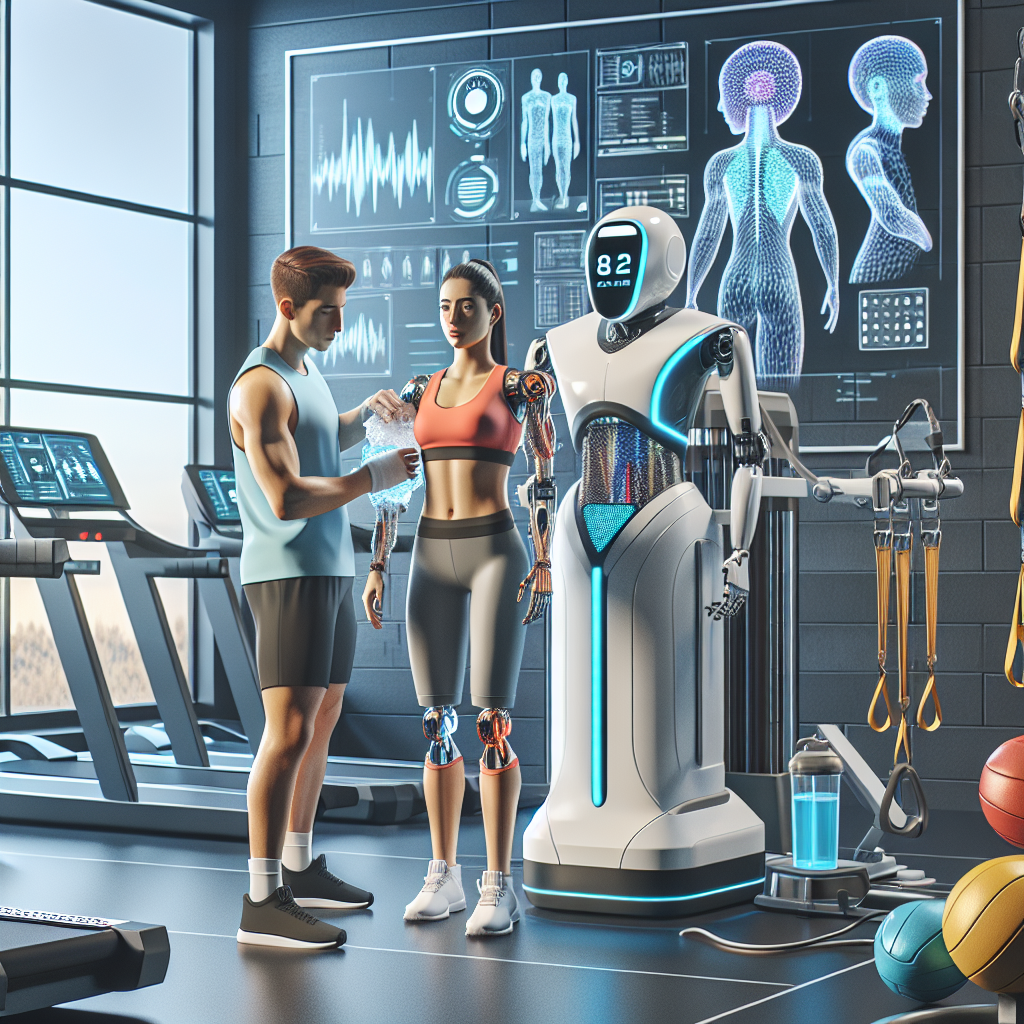In the world of sports, recovery is just as important as training. Athletes push their bodies to the limit in order to perform at their best, and proper recovery is essential for preventing injuries, improving performance, and maximizing gains from training. In recent years, artificial intelligence (AI) has emerged as a powerful tool in the world of sports science, helping athletes and coaches track and optimize recovery strategies to enhance performance. In this article, we will explore how AI is being used to enhance athlete recovery in sports and the potential benefits it offers.
AI in Sports Recovery
AI is revolutionizing the way athletes recover from intense training sessions and competitions. By analyzing vast amounts of data, AI algorithms can provide personalized recommendations to athletes based on their individual needs and preferences. These recommendations can include everything from nutrition and hydration to sleep and stress management strategies.
One of the key benefits of using AI in athlete recovery is its ability to provide real-time feedback. By monitoring various physiological markers such as heart rate, sleep quality, and hydration levels, AI can alert athletes and coaches to potential issues before they become serious problems. For example, if an athlete’s sleep quality is poor, AI can recommend adjustments to their sleep schedule or bedtime routine to improve recovery.
AI can also help athletes optimize their training schedules by analyzing data from previous workouts and competitions. By identifying patterns and trends in performance, AI can recommend changes to training intensity, duration, or frequency to maximize gains and prevent overtraining. This personalized approach to training can help athletes avoid burnout and injuries, leading to better long-term performance.
In addition to monitoring physical markers, AI can also track psychological factors that affect recovery, such as stress and mood. By analyzing data from wearable devices and self-reported information, AI can provide athletes with strategies to manage stress and improve mental well-being. This holistic approach to recovery can help athletes perform at their best both on and off the field.
FAQs
Q: How does AI track athlete recovery?
A: AI can track athlete recovery by analyzing data from wearable devices, such as fitness trackers and heart rate monitors. These devices provide real-time information on physiological markers like heart rate, sleep quality, and hydration levels, which AI algorithms can use to monitor recovery and provide personalized recommendations.
Q: How can AI help athletes optimize their training schedules?
A: AI can help athletes optimize their training schedules by analyzing data from previous workouts and competitions. By identifying patterns and trends in performance, AI can recommend changes to training intensity, duration, or frequency to maximize gains and prevent overtraining. This personalized approach to training can help athletes avoid burnout and injuries.
Q: Can AI help athletes manage stress and improve mental well-being?
A: Yes, AI can help athletes manage stress and improve mental well-being by tracking psychological factors that affect recovery, such as stress and mood. By analyzing data from wearable devices and self-reported information, AI can provide athletes with strategies to manage stress and improve mental well-being. This holistic approach to recovery can help athletes perform at their best both on and off the field.
Q: Are there any limitations to using AI in athlete recovery?
A: While AI has many benefits in athlete recovery, there are some limitations to consider. For example, AI relies on data input from athletes, which can be subjective and prone to error. Additionally, AI algorithms are only as good as the data they are trained on, so it is important to ensure that the data used is accurate and relevant to the athlete’s needs.
In conclusion, AI is revolutionizing the way athletes recover from intense training sessions and competitions. By analyzing data from wearable devices and providing personalized recommendations, AI can help athletes optimize their recovery strategies and improve performance. From tracking physiological markers to managing stress and mental well-being, AI offers a holistic approach to athlete recovery that can benefit athletes of all levels. As the field of sports science continues to evolve, AI will play an increasingly important role in helping athletes reach their full potential.

